Our Location
304 North Cardinal St.
Dorchester Center, MA 02124
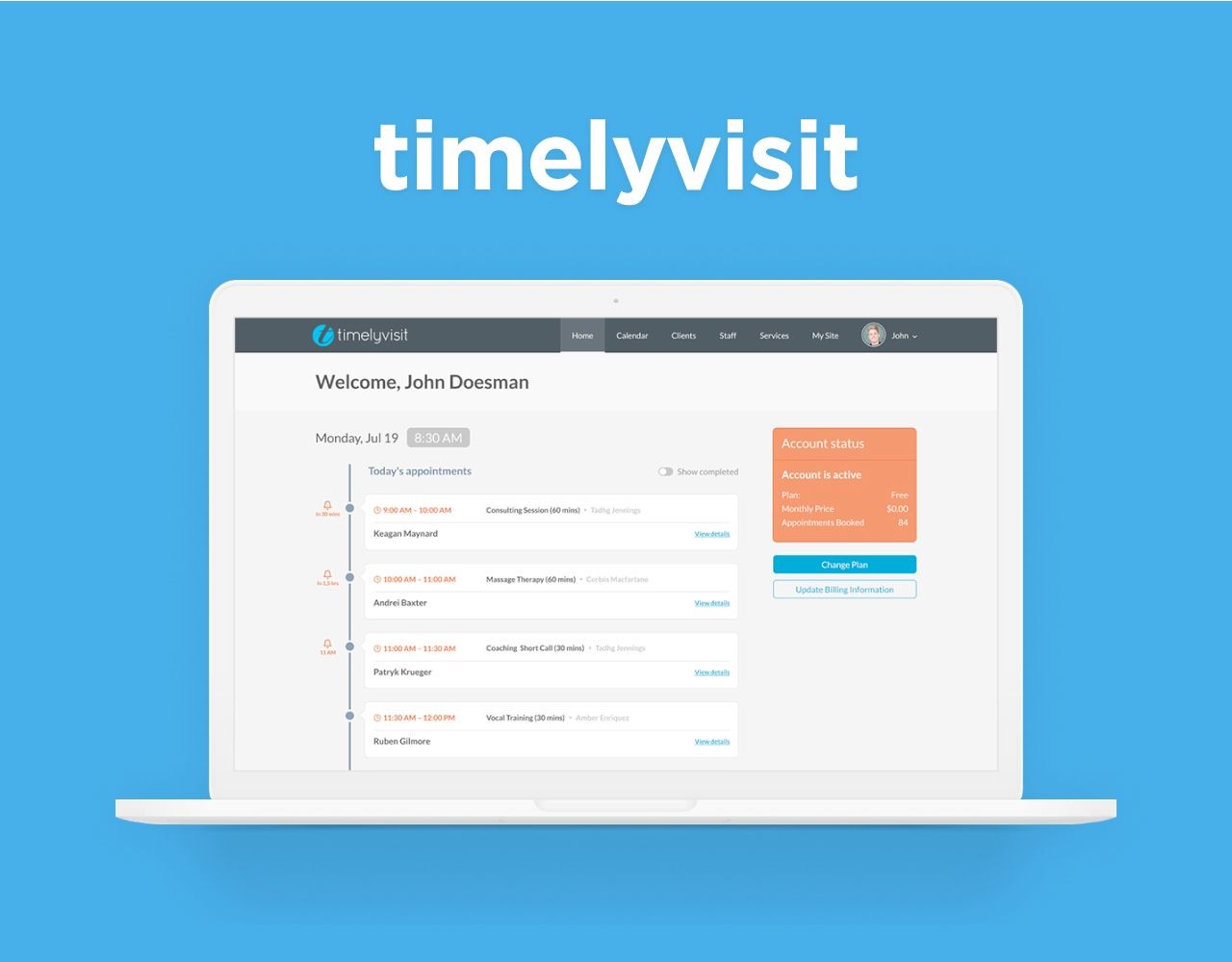
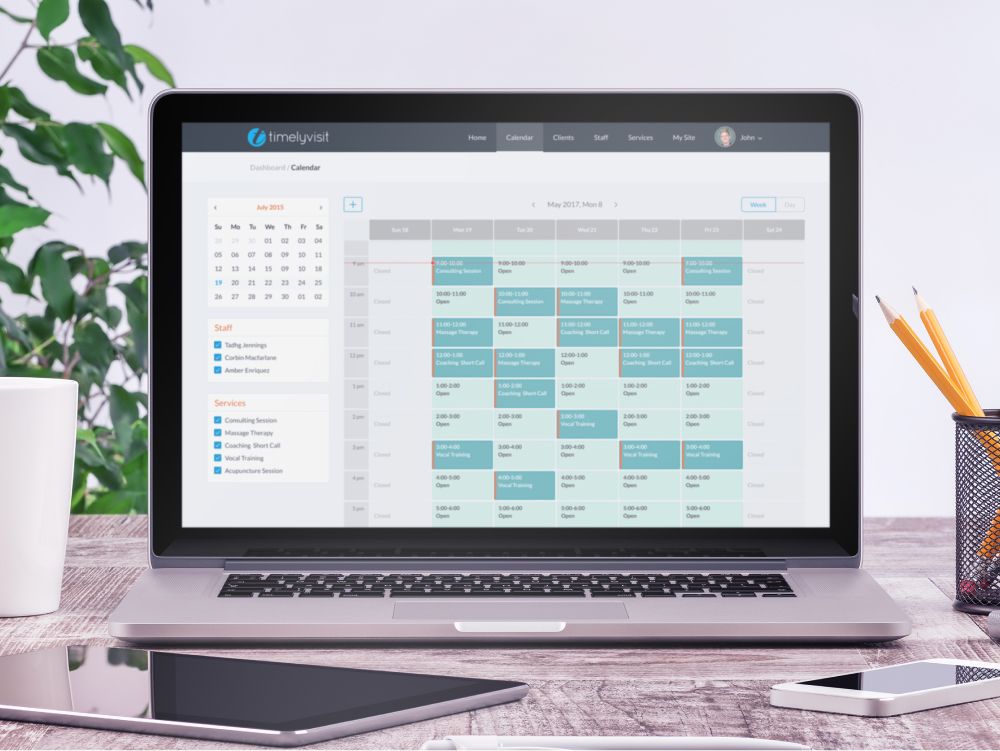
Timely Visit — it is an appointment scheduling online tool that provides masters with an opportunity to automates booking processes for their customers using the recent web and mobile technologies, maximizing business efficiency.
The biggest challenge was creating a usable interface that doesn’t look to outdated and at the same time contains all required features that can cover most of the customer’s needs, that team found out during the research stage.
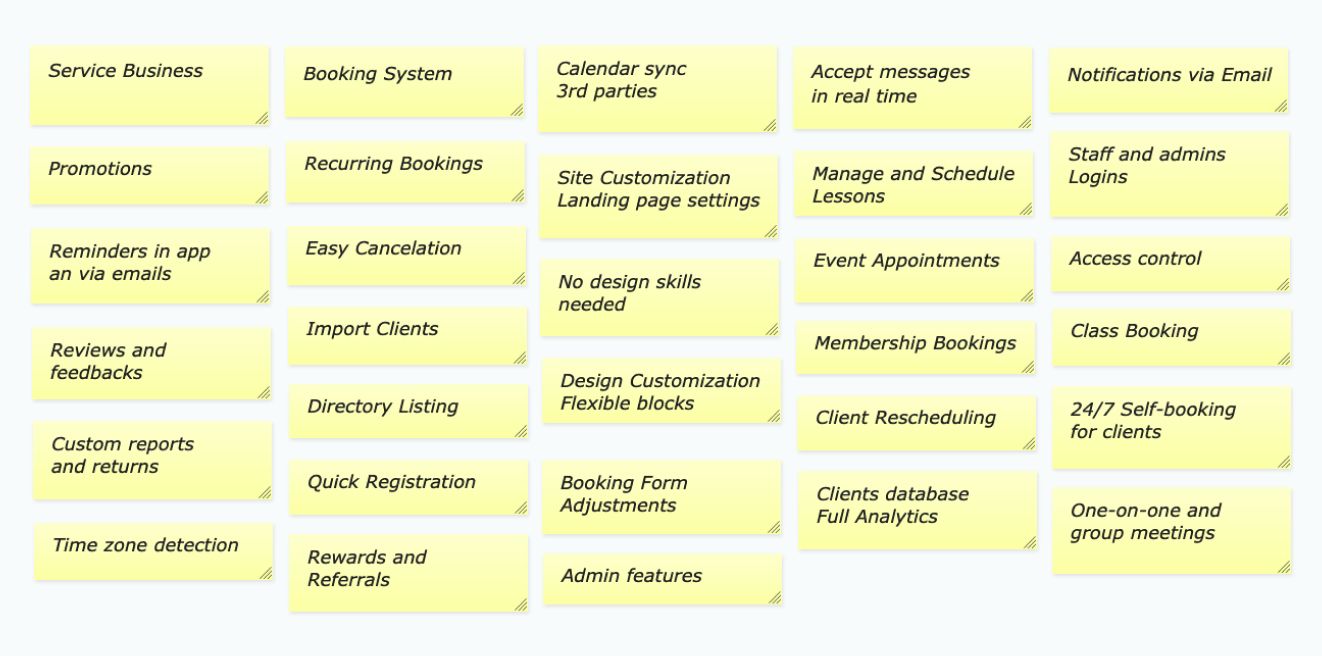
We started by putting all client’s information together, ideating multiple options for every customer and business need. This involved meticulous, detailed work in writing notes, creating sketches, and making simple drawings.
Later on, we started to think about how to structure information architecture, cause the product should suits well for dozens of business categories and subcategories, and we needed to focus on the most critical sections.
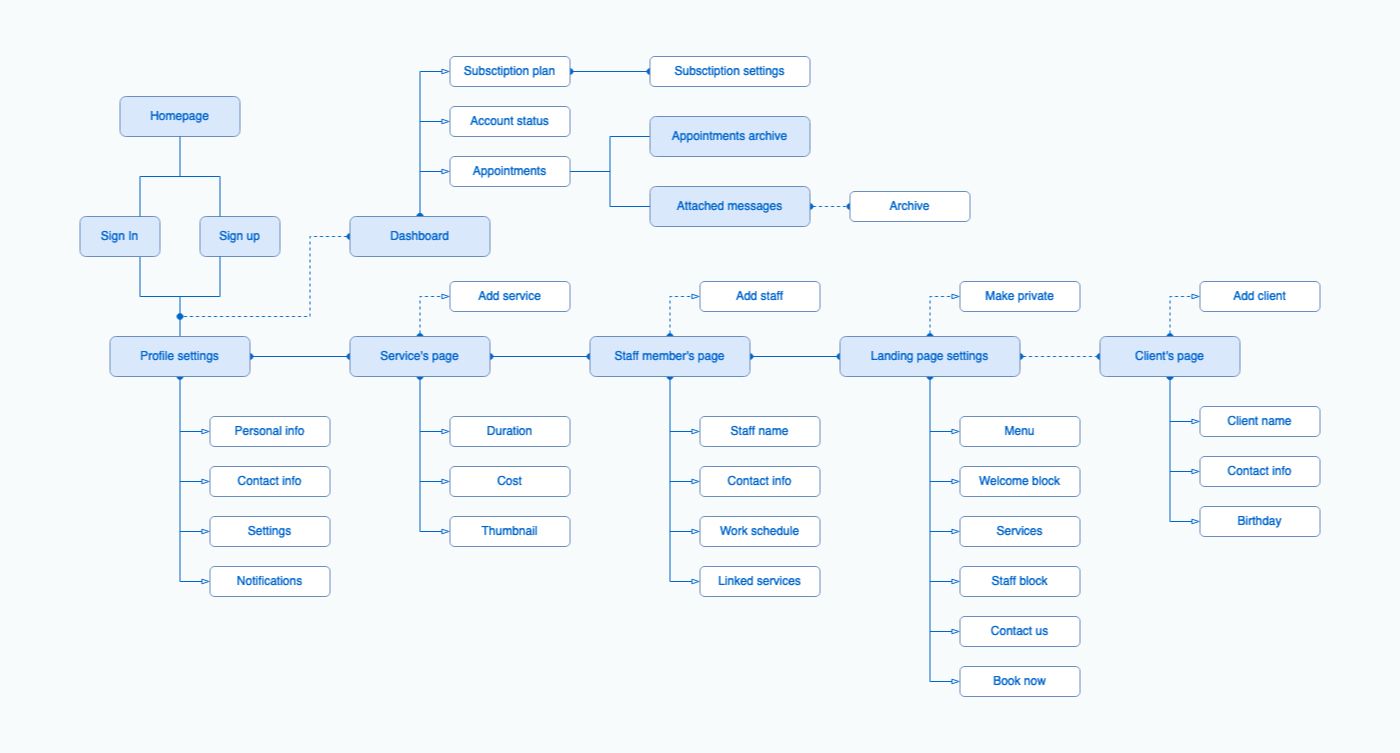
Once the basic structure has been determined, it’s time to create low-fidelity prototypes so we can get the basic forms of each new screen. I didn’t have a goal to do something complicated and too exciting, just basic wireframes that are usually can be done in Balsamiq Mockups.

The main objective was to create a product that would visually be suitable for a wide motley audience – something fresh, clear, and friendly, but at the same time with a bit traditional look and feel.
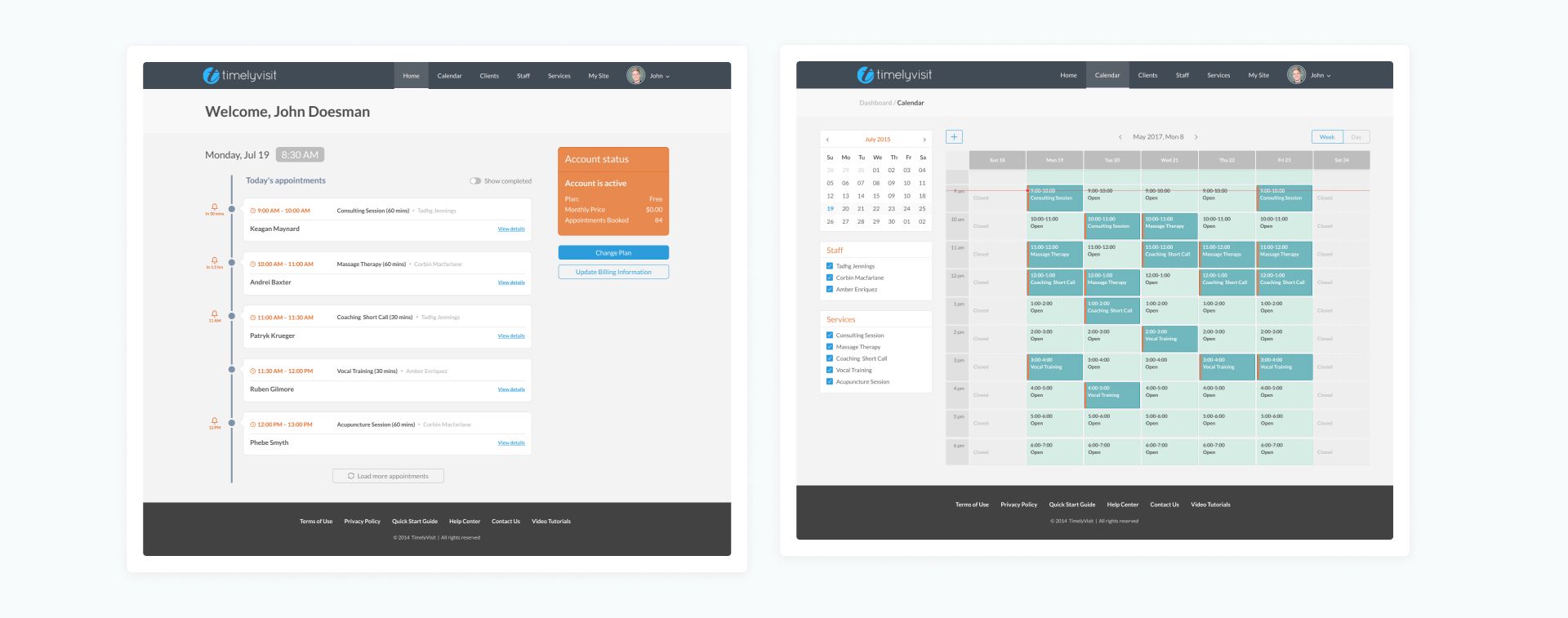
It was not so easy to get the balance right at that kind of scale, but after lots of iterations, I finally settled on the visual style, which the client can use for years.

In addition to this, I specially designed dozens of templates, to give future customers of Timely Visit the opportunity to achieve their goals and uniquely present their small business in any corner of the world.

This project has brought me many useful learnings. First of all, any action has to start somewhere, and in the case of UX design, this means that first, we must learn to analyze information and take into account users’ needs, problems and requests.
A lot of things that we work on today revolves around making products simple enough that we can quickly learn how to use them. And this means that the stage of prototype building should take a great deal of time and planning.
And the last thing is that any designer should look at the UX challenge as an opportunity to improve his skills and grow as a professional.